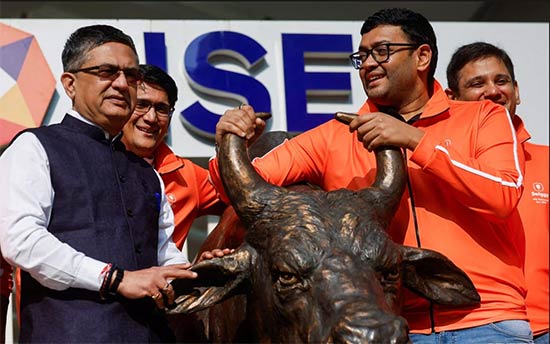The National Commission for Women (NCW) registered an increase of at least 2.5 times in domestic violence complaints since the nationwide lockdown, according to official data. The sharp spike belies Union Women and Child Development Minister Smriti Irani's remarks that there was no increase in such incidents and that NGOs were "scaremongering".
Between March 25 and May 31, the NCW received 1,477 complaints of domestic violence. Nearly 727 of these complaints were received on its WhatsApp helpline (+917217735372 ) set up in April to ensure women, who couldn't access emails or send complaints by post, could receive help.
The total complaints during the 68-day period were 1.5 times the 607 of complaints received between March and May last year.
Despite the numbers, Ms. Irani dismissed concerns over the rise in incidents of domestic violence. News reports last week said that during a webinar, the Minister had denied there was in increase in incidents. Ms Irani said there was some "scaremongering done especially with some development partners who are in the NGO sector that 80% of women who are now at homes in India or across the world will be getting beaten up."
Activists working on the ground say there is sufficient evidence to show that not only is there a spurt in domestic violence, but also in severity of these assaults and their traumatic effects on women.
"There is a war in our homes - more than 8,500 women were killed by their spouses and their family member and 1,03,272 cases of domestic violence were reported in 2018 (NCRB 2018). Domestic violence is a reality that existed prior to coronavirus (COVID-19), and has intensified as a result of the lockdown, because women are locked in with their abusers 24x7, their housework and care work responsibilities have increased and all the stress and tensions are released on women," said Anuradha Kapoor, Director of Swayam, an NGO in Kolkata."
"The kind of violence that is now being meted out to them is much more severe. We had a woman locking herself up in a room and asking us to call the police to rescue her because she feared for her life. Another woman who was pregnant, was beaten up so badly that she fled the house with her 5-year-old daughter and walked to her parents home in the middle of the night. Young girls have also been reaching out for help because they are being abused by their brothers/fathers," she added.
Swayam, working in the area of women's rights, has seen a more than two-fold increase in domestic violence complaints, which have gone up from an average of 22 complaints at each month before COVID-19 to an average of 57 complaints per month on their helplines or through email. It started with three helplines when the lockdown was imposed on March 25, and now has nine functional helplines.
"The government needs to prepare a robust plan and provide adequate budgets to provide support services to survivors, ensure implementation of laws against domestic violence and conduct campaigns that highlight that Domestic Violence is a crime, unacceptable and that the state will take firm action against it," adds Ms Kapoor.
Another activist who has been spearheading efforts to ensure women around the country have access to resources in case they experience violence at homes, said the messaging from the government will "take away public attention and deprive us of resources to rescue survivors. There is a need to ensure sustained public attention because domestic violence will not go away once the pandemic is over". The activist, who spoke on the condition of anonymity, is a part of the AMAN network, a collective of NGOs working on violence against women.
While the Women and Child Development Ministry has instructed One Stop Centres and Women Helplines to remain open, several demands, including appeals to ensure that assistance for domestic violence survivors is declared an essential service, have fallen on deaf ears. UN Women has called it a shadow pandemic and the UN Chief Antonio Guterres urged governments around the world to put women's safety first while responding to the pandemic.












